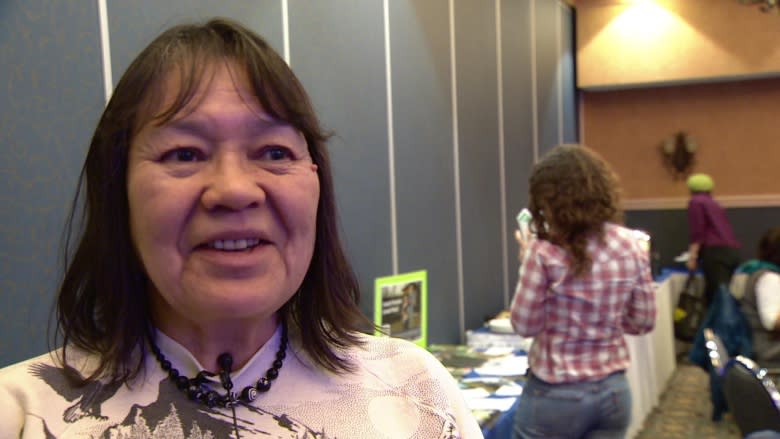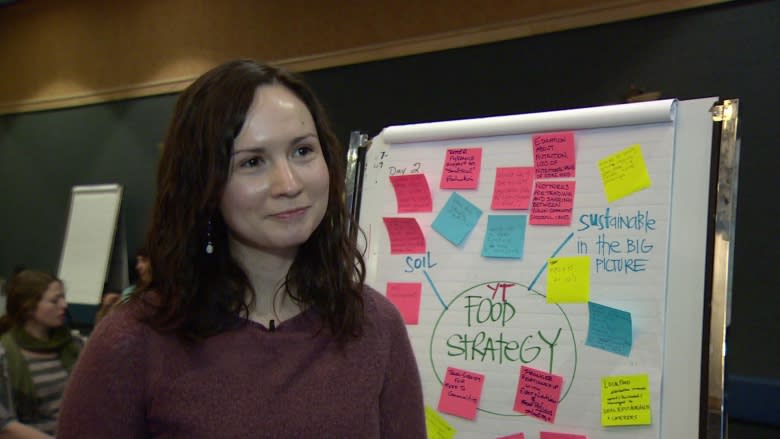Whitehorse gardening conference aims for return of local agriculture
Gardeners from small northern communities are in Whitehorse talking about growing food and increasing food security.
Delegates from communities in Yukon, the Northwest Territories, and northern British Columbia say that Canada's North needs a new food system — one that is less centralized and less dependent on shipping.
The "Bringing Growers and Gardeners Together" conference is organized by the Arctic Institute of Community-Based Research in Whitehorse.
Norma Kassi, co-founder of the non-profit, says access to food is increasingly difficult as wild species decline.
"All across the Arctic, there's more evidence of food insecurity because of declining food sources (such as) caribou and salmon. And here in the Yukon we're no different," she says.
"We have to begin to address food security and food insecurity in our community."
The World Health Organization's definition of food security is "when all people at all times have access to sufficient, safe, nutritious food to maintain a healthy and active life.”
'Yukon used to be a very vibrant agricultural community'
Many communities have started addressing this crucial issue. Conference attendees shared stories of success and struggles tilling the land. Kassi says the discussion topics ranged from vegetable production to livestock.
"People are looking at husbandry as well, maybe bringing in a couple of little piglets or chickens. Yukon used to be a very vibrant agricultural community in all the communities and that's coming back. We have to address their decline of traditional sources of food in some manner."
Jean Van Bibber, a member of the Selkirk First Nation in Pelly Crossing, says her community is using the local school as a venue to start planting seeds.
"We have two greenhouses and a big garden patch and a small patch that needs working on. We're going to do raised beds there. We had no place to do seedlings, so the school volunteered their big foyer with big windows. So we're growing the seeds at the school," she says. "All the kids are helping."
Megan Williams raises chickens in Old Crow and is involved in the community garden. She says growing in the North is a constant experiment.
"We're surprised at how well things grow, how hearty the plants are, what kind of temperatures they can withstand," she says. There's people that are producing some pretty amazing gardens up there."
Maintaining community garden programs can be difficult. At least one community is trying to revive a project that has fizzled in years past.
Fiona Seki Wedge, garden project coordinator with the Carcross Tagish First Nation, says her community is revitalizing an old project.
"About 10 years ago it was started," says Wedge. "It was two greenhouses, a couple of outdoor garden plots, but they all had to be revisited and brought back to life."
Economic development
Conference attendees were also trading ideas on how agriculture can boost economic development.
Meta Williams from the Haines Junction Economic Development Society says her community is looking at growing vegetables to support good causes such as elders' and babies' programs through concessions and fundraising.
Bringing Growers and Gardeners Together in running simultaneously with a conference in Whitehorse that is looking at greenhouse technologies and ways to increase gardening yields in the North.




